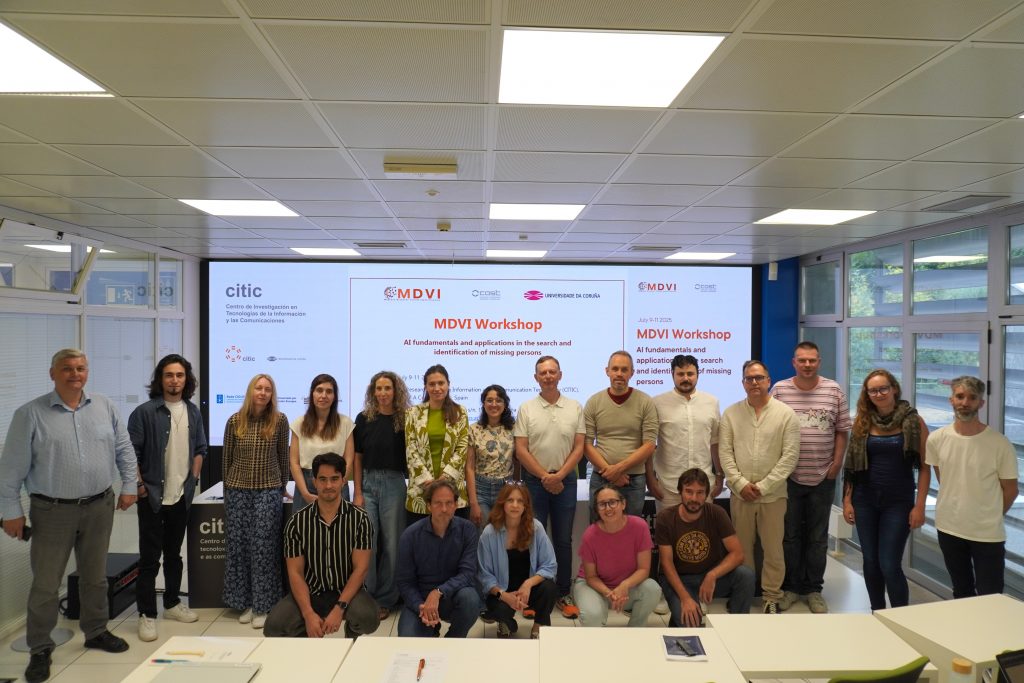
CITIC hosts an international course on AI fundamentals applied to the search and identification of missing migrants
The Centre for Research in Information and Communication Technologies (CITIC) at the University of A Coruña has been the venue for an international course focused on the fundamentals of artificial intelligence (AI) and its applicability in the search for and identification of missing migrant persons. The training is part of the European project Migrant Disaster Victim Identification (Migrant DVI), an action under the COST programme (European Cooperation in Science & Technology), funded by Horizon Europe.
The course, coordinated by CITIC researcher Óscar Ibáñez, was aimed at a diverse group of professionals — from computer scientists to geneticists, anthropologists, geographers, and historians — who are part of the project’s international network. The activity is part of the initiatives proposed by Working Group 4, which focuses on training and identifying capacity-building needs within the consortium.
During the sessions, participants received an introduction to the fundamentals of AI and explored its possible practical applications in the context of searching for and identifying missing migrants. Tools, usage examples, and case studies were presented, demonstrating the potential of these technologies to address the unique challenges of the forensic migration field, in a course designed to be accessible to non-specialists in the technological domain.
The Migrant DVI project responds to an urgent need: improving European capabilities in the identification of individuals who have died during migratory transit. It is currently estimated that only 20% of deceased migrants’ remains are successfully identified, due to legal, technical, and cross-border cooperation limitations. The application of AI represents a key opportunity to move toward more effective, sustainable, and respectful processes for the families of the missing.
The Migrant DVI network is composed of around 200 members from more than 35 countries, including academic institutions, humanitarian organizations, and leading forensic centres. Among the participating entities are: the University of A Coruña, Liverpool John Moores University, the University of Milan, the European Training Center of Active Forensic Sciences and Disaster Victim Identification, the University of Málaga, Masaryk University (Czech Republic), the International Commission on Missing Persons, University College Dublin, the Federation of African Associations in the Canary Islands, and the Platform for Transnational Forensic Assistance.
More information and full event programme: https://migrant-dvi.eu/news/





